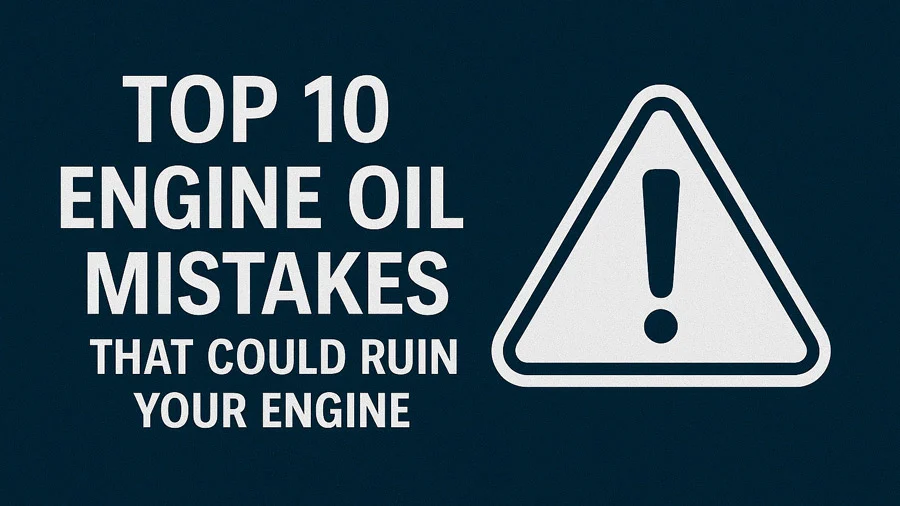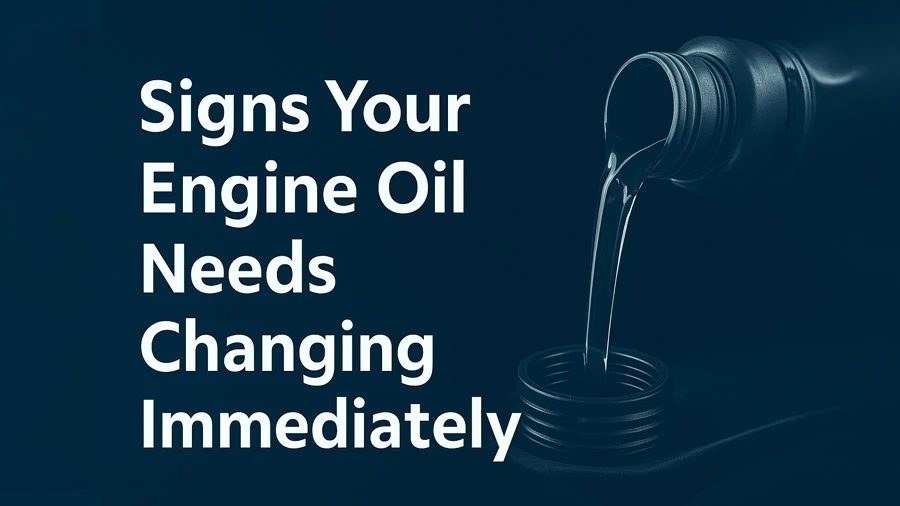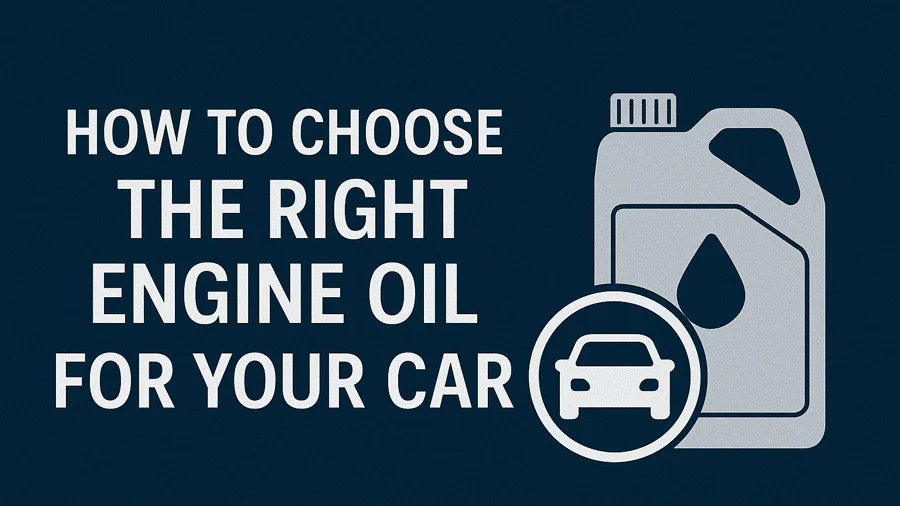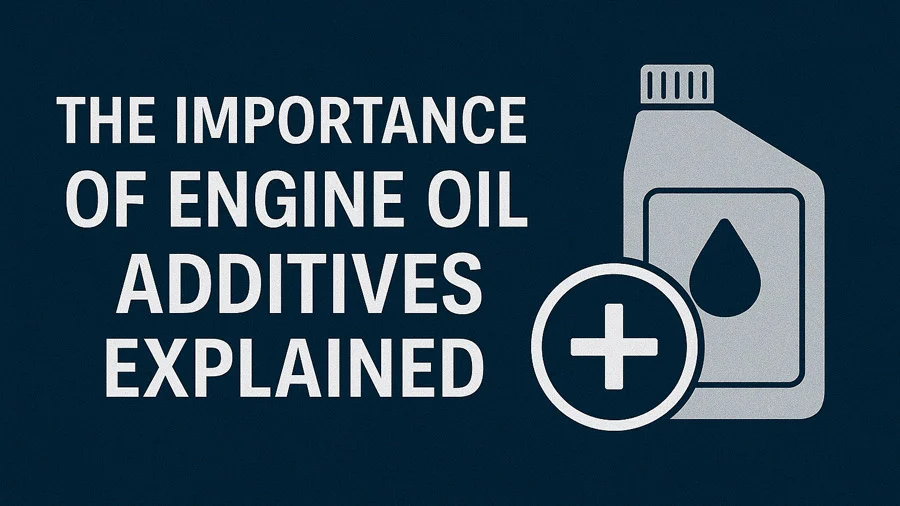So you’re standing in an auto shop, staring at two bottles—one says “Conventional,” the other says “Full Synthetic.” One is cheaper. One has a shinier label. You’re stuck. Which one should you trust with your engine’s life?
Let’s break it all down in plain English.
Table of Contents:
What Is Engine Oil and Why It’s Crucial
Engine oil isn’t just some slick liquid. It’s what keeps your engine cool, clean, and well-lubricated. Without it, your car won’t last long. Choosing the right kind can mean fewer repairs and longer life for your engine.
The Basics: What Is Conventional Oil?
Conventional oil is derived straight from crude oil. It’s refined and cleaned but still contains more impurities than synthetic oils.
- Pros:
Affordable, readily available, fine for older cars or basic driving habits. - Cons:
Breaks down faster, less resistant to heat, more sludge formation over time.
The Basics: What Is Synthetic Oil?
Synthetic oil is man-made—engineered molecule by molecule for optimal performance. It mimics the best parts of oil while removing the bad stuff.
- Pros:
Superior protection, cleaner engine, better high/low temp performance, longer intervals between changes. - Cons:
More expensive up front.
How Is Synthetic Oil Made Differently?
Think of it like filtered water vs. spring water. Synthetic oils are broken down and rebuilt in labs using pure chemical compounds. They include additives that resist wear, clean sludge, and perform consistently under pressure.
Key Performance Differences
Viscosity Stability in Different Temperatures
- Conventional oils tend to thicken in cold and thin out in heat.
- Synthetics stay stable—flowing smoothly in winter and protecting under extreme heat.
Imagine molasses vs. maple syrup in a freezer. Which flows better? That’s synthetic.
Engine Cleanliness and Deposit Control
- Conventional oils leave behind sludge over time.
- Synthetics contain detergents that prevent build-up.
Your engine stays cleaner, longer.
Oil Change Intervals: Which One Lasts Longer?
- Conventional: Every 3,000–5,000 miles.
- Synthetic: 7,500–15,000 miles (depending on driving conditions and oil brand).
So yeah—you pay more up front, but you don’t change it as often.
Price vs. Performance: Is Synthetic Worth It?
If you’re just doing short trips in an old sedan? Conventional might do the job.
But if:
- You drive a new car
- You’re in extreme climates
- You p ush your car hard (long commutes, towing, high RPMs)
Then synthetic oil is well worth the investment.
Environmental Impact Comparison
- Conventional oil = more frequent oil changes = more waste oil.
- Synthetic oil lasts longer = less disposal, fewer oil filters used, better for the planet.
Bonus: most synthetics are now more biodegradable than ever.
Which Type Is Better for High-Mileage Vehicles?
This depends. Some synthetics are designed for high-mileage engines and even include seal conditioners to reduce leaks. But if your car has major oil leaks or burns oil fast, some mechanics recommend a thicker conventional or semi-synthetic option.
Turbocharged and High-Performance Engines: What Do They Need?
Always synthetic. Period.
Turbochargers generate intense heat, and synthetic oils handle that heat far better than conventional oils. If you’re driving a turbo, performance car, or European vehicle—don’t even think twice.
Cold Start Protection: Why Synthetic Wins Here
In winter, your engine needs oil to circulate fast. Thick, slow oil means more wear on startup. Synthetic oil flows instantly in freezing temps—protecting your engine from the first turn of the key.
Myths About Synthetic and Conventional Oils
Can You Switch Between the Two Types?
Yes! It won’t hurt your engine. Modern engines are designed to handle both.
Is Synthetic Oil Bad for Old Engines?
Nope. That’s outdated thinking. In fact, synthetic oil may even help reduce wear—just choose the right formulation (like high-mileage synthetic).
Manufacturer Recommendations Matter Most
Whatever oil you choose, make sure it matches your car’s owner’s manual. Look for:
- Viscosity (like 5W-30)
- API Service Rating (like SN, SP)
- Certification marks (like Dexos, ACEA)
Final Verdict: Which One Should You Choose?
There’s no one-size-fits-all answer. But here’s a cheat sheet:
FAQs
Yes, but only if absolutely necessary. Stick to one type when possible.
Check the manual or oil cap. If it says “Synthetic Recommended” or “Dexos Approved,” go with synthetic.
Not usually. But if seals are already bad, it may expose existing issues.
Yes. Since it lubricates faster on cold starts, it protects better in stop-and-go traffic.
Because it’s engineered to last longer and perform better. You’re paying for quality—and fewer oil changes.



